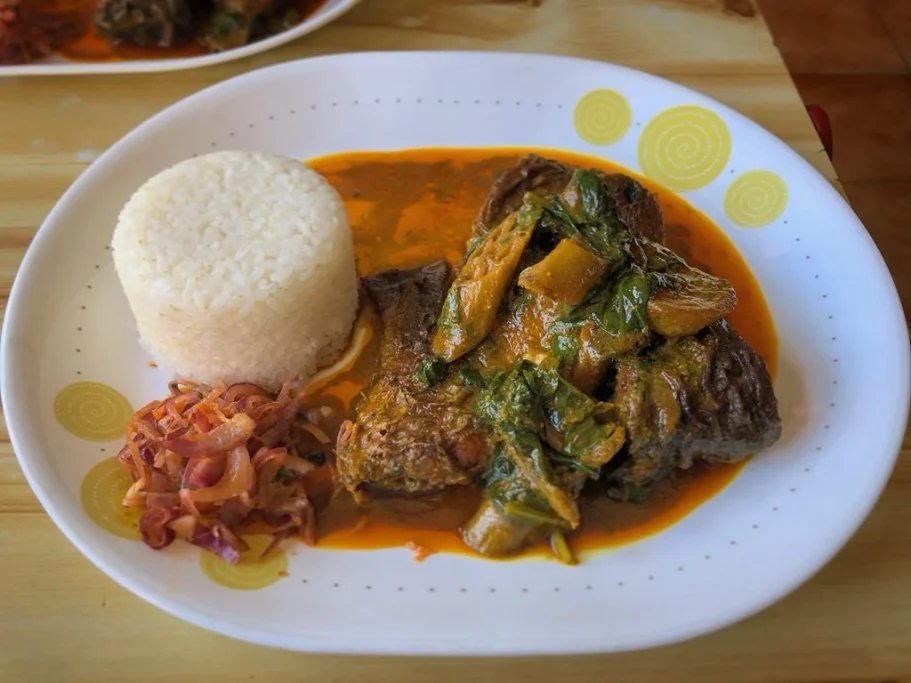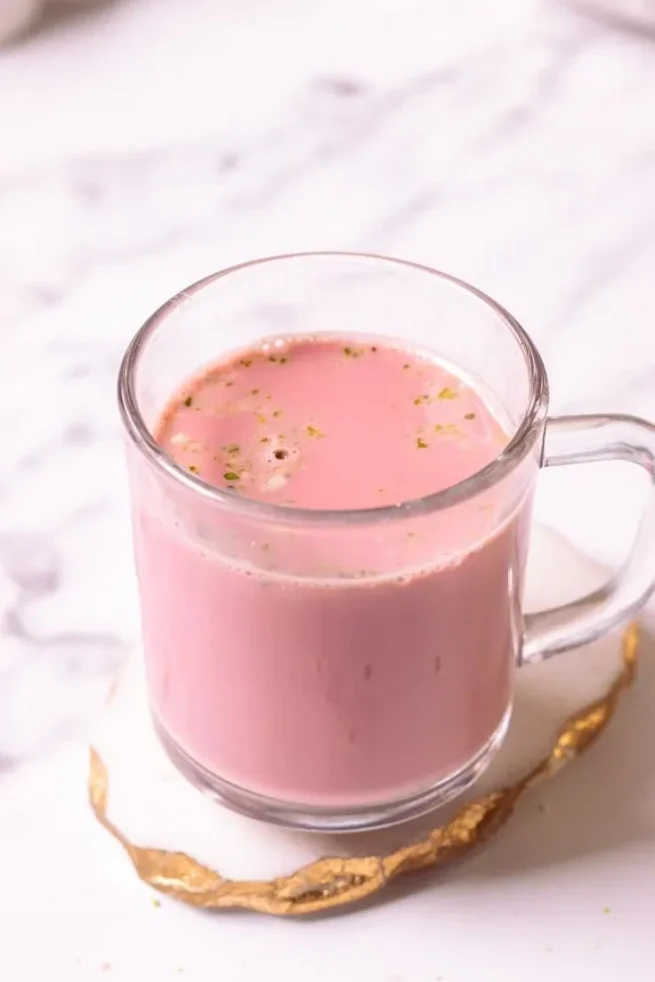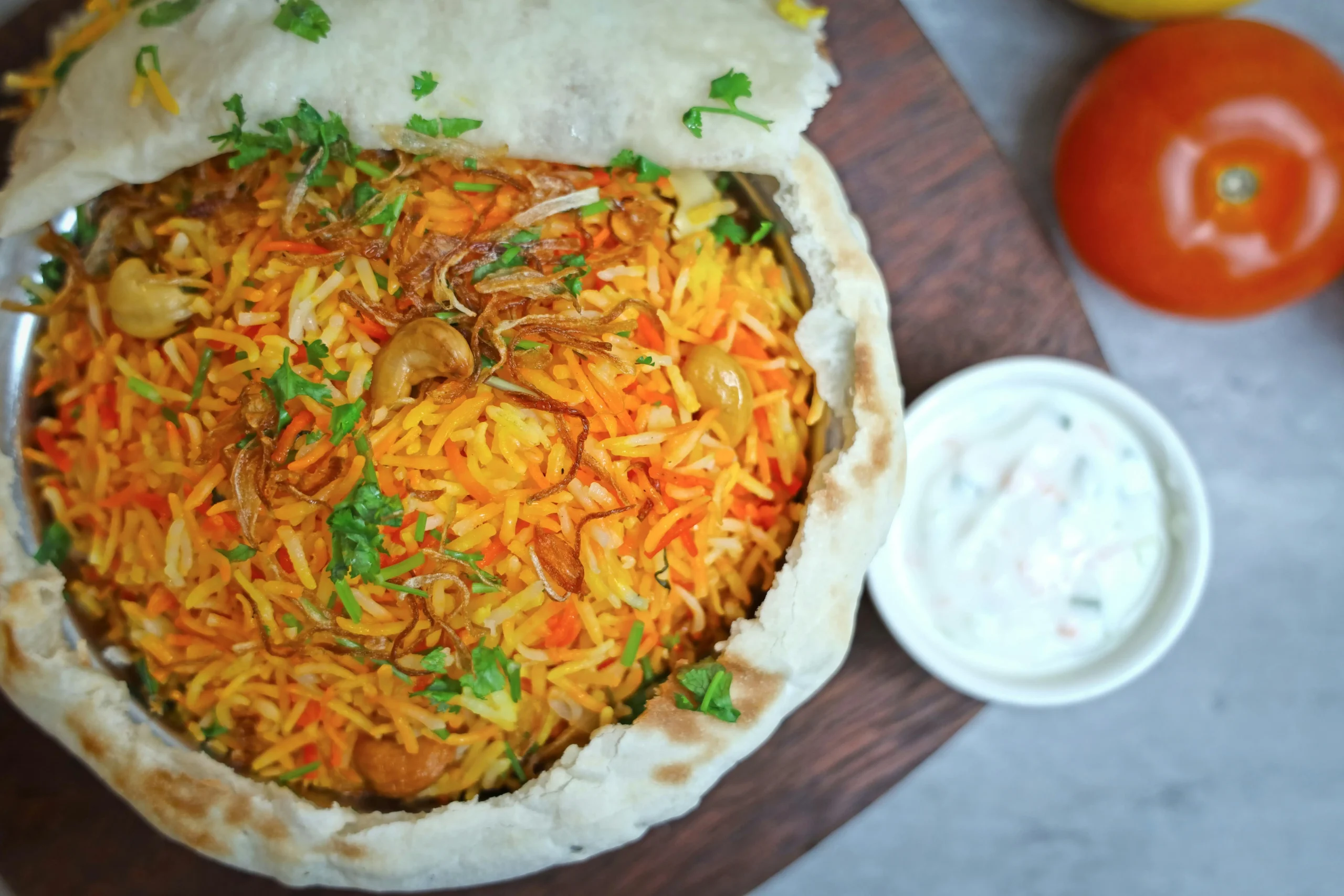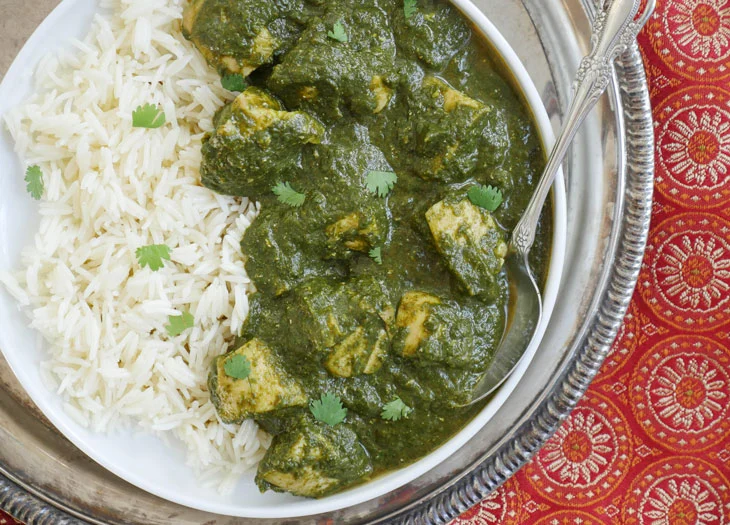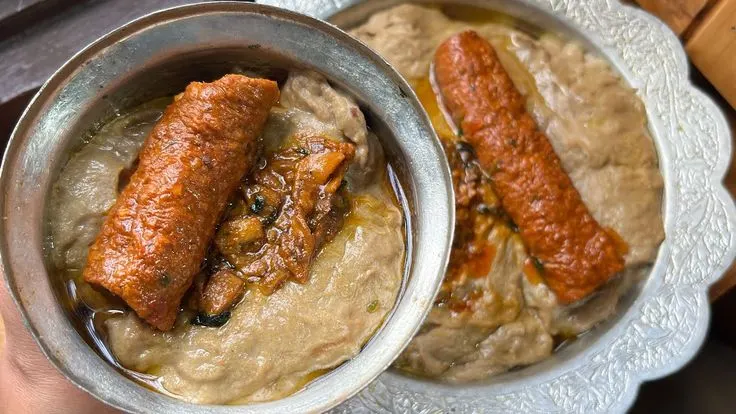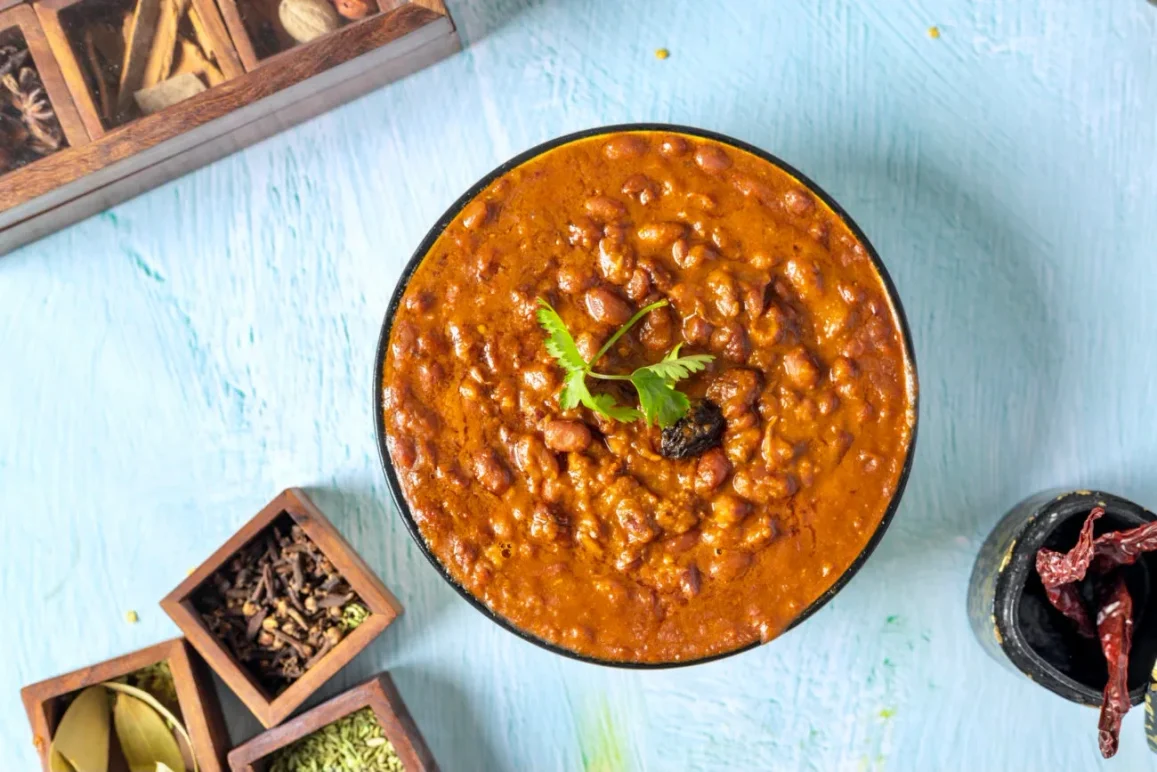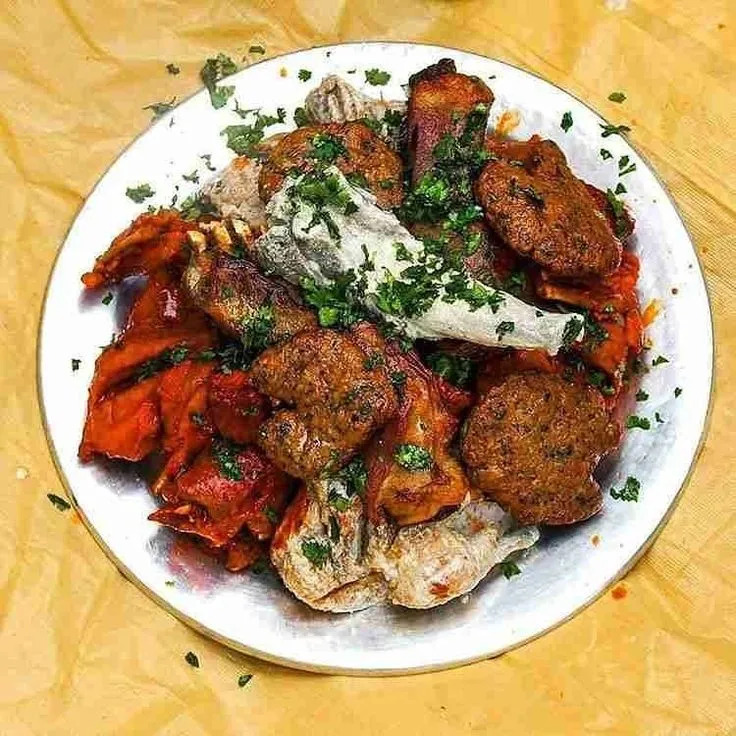Kashmir is heaven, not only in terms of landscapes but for foodies too. Everyone should not only visit Kashmir but also try Kashmiri food once in their lifetime. Kashmir cuisine is varied and flavorsome. Not only will you find the influence of Mughals and Arabs in the dishes, but many of the dishes have a signature of Kashmiri pundits on them. If you are a meat lover, you have more advantages than vegetarians because Kashmiris know 30 different ways to make mutton.
Though this does not mean Kashmir food has nothing to offer to vegetarians. When you go through the list, you will find yourself drooling over your screen. Muji gaad or machhli mooli, as commonly known, is a very special regional specialty from Kashmir. This delicacy from Kashmiri Pundit cuisine is also hugely popular during winters.
Served on festivals and occasions, Kashmiri gaad is a dish made up of fish prepared generally with radish or nadur. This dish is an amalgamation of vegetarian and non-vegetarian items as the taste of fish and lotus stem blend together to give it a unique taste, while hot spices and herbs add to its unique yet amazing flavour and aroma. This dish is usually served/during festivals like ‘Gaada Bata’ in the month of December.
Muji gaad, also known as Machhli Mooli, is a traditional Kashmiri Pandit dish consisting of fish curry cooked with radish. It’s a special wintertime dish, often prepared for festivals and special occasions, and is typically served with plain steamed rice. The dish is known for its spicy and tangy flavor.
Muji gaad, also known as Machhli Mooli, is a traditional Kashmiri Pandit dish consisting of fish curry cooked with radish. It’s a special wintertime dish, often prepared for festivals and special occasions, and is typically served with plain steamed rice. The dish is known for its spicy and tangy flavor.
Benefits of Eating Fish
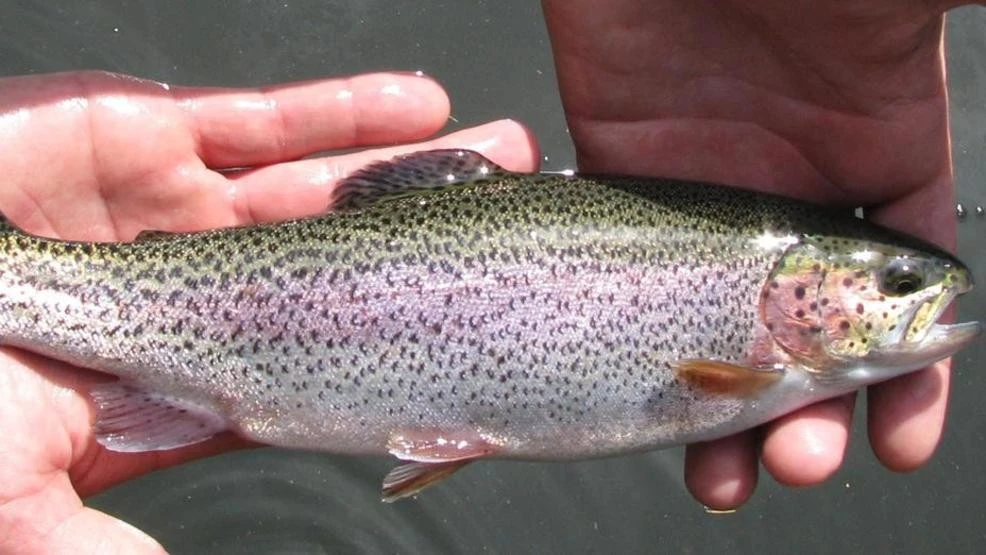
High in important nutrients
Fish is packed with many nutrients. This includes high-quality protein, iodine, and various vitamins and minerals.
Fatty species are sometimes considered the healthiest. That’s because fatty fish, including salmon, trout, sardines, tuna, and mackerel, are higher in fat-based nutrients.
This includes vitamin D, a fat-soluble nutrient that many people are deficient in.
Fatty fish also boast omega-3 fatty acids, which are crucial for optimal body and brain function and strongly linked trusted source to a reduced risk of many diseases.
May lower your risk of heart attacks and strokes
Fish is considered one of the most heart-healthy foods you can eat. Researchers believe that fatty types of fish are even more beneficial for heart health due to their high omega-3 fatty acid content. In a 2020 review study, researchers concluded that fish consumption is associated with a lower incidence of coronary heart disease (CHD) and mortality.
Growth and development nutrients
Omega-3 fatty acids are essential for growth and development.
The omega-3 fat docosahexaenoic acid (DHA) is especially important for brain and eye development. Another omega-3 fat, eicosapentaenoic acid (EPA), is important to take during pregnancy, as it supports a healthy heart and immune response during fetal development.
May boost brain health
Your brain function often declines with aging. While mild mental decline is normal, neurodegenerative ailments such as Alzheimer’s disease also exist.
Ingredients:
- 800 g of freshwater fish
- 400 gms white radish
- half a cup of yoghurt
- 2 tsp salt
- 2 1/2 turmeric powder
- 20 ml lemon juice
- 100 ml mutard oil – 100 ml
- 4 tsp Kashmiri chilli
- Powder
- 1/4 tsp asafoetida
- 2 no bay leaves
- 8 nos cloves
- 5 green cardamoms
- 1/2 tsp cinnamon powder
- 1 tsp back cumin powder
- 1 tsp ginger powder
- 3 tsp fennel powder
- 1/4 tsp black pepper powder
- 30 g tamarind pulp
- Oil (for deep frying)
Step-by-Step Muji Gaad Recipe:
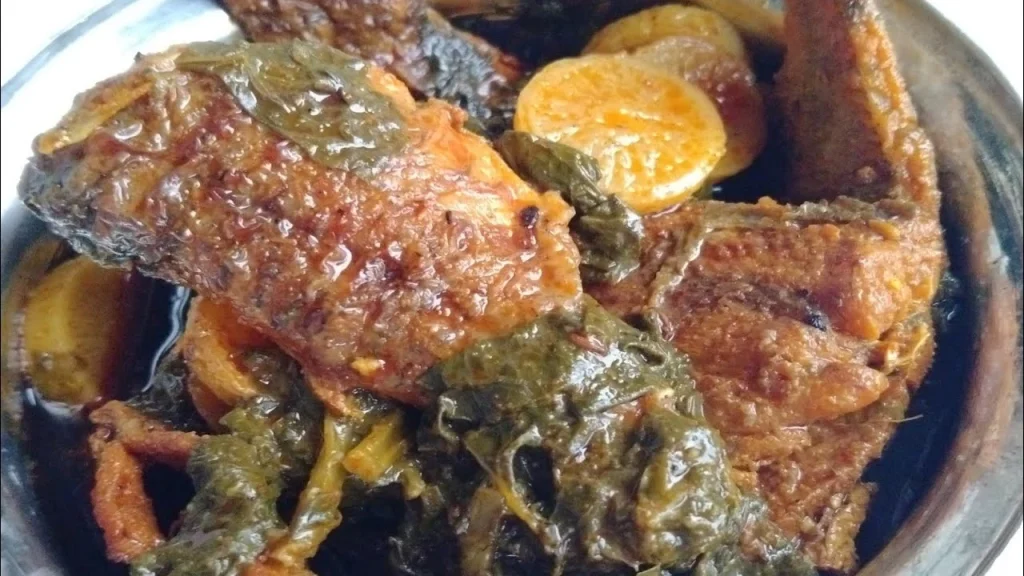
Clean and cut the fish into small pieces without the bones. Wash and pat dry with a kitchen towel. Marinate the fish in one teaspoon of salt, turmeric powder, and lemon juice. Keep aside for 15 minutes. Peel and cut radish (mooli) into 1 1/2 inch thick roundels. Prick with a fork and keep aside. Soak the tamarind in warm water (approximately 1 cup) for 30 minutes. Mash it with your hands and extract the pulp. Strain and keep aside.
Heat oil in a kadhai. Deep fry the fish till crisp and well browned, and then fry the radish till golden.
Remove from the oil and keep aside on a kitchen towel to drain excess oil.
Now heat the mustard oil to the smoke point, lower the flame, and then add green cardamom, cloves, and bay leaf.
Mix Kashmiri chilli powder, turmeric powder, and asafoetida powder with yoghurt and add to the crackling spices in the kadhai, stirring continuously.
Then add 1 cup of warm water and bring to a boil. Add salt, fennel powder, ginger powder, and tamarind extract. Mix well.
Add the fried fish and fried radish to the gravy, cover with a lid, and simmer on a slow flame till the gravy has reduced to half its quantity.
Finish with cumin powder and cinnamon powder. Serve warm with steamed basmati rice.
Conclusion
Muji Gaad is traditionally served with steamed rice, which helps balance the bold flavors of the mustard oil and spices used in the dish. The soft, spiced fish combined with the slightly sweet and earthy radish complements plain rice perfectly, making it a wholesome and satisfying winter meal.

